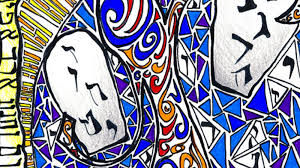Selichot
- Rabbi Stephen Epstein

- Sep 5, 2017
- 1 min read
In the Ashkenazic (European) tradition Selichot are begun from the Sunday (often the Saturday night) before Rosh Hashanah until Yom Kippur. This officially starts the High Holiday season that encompasses Rosh Hashannah (Spiritual New Year) and Yom Kippur (Day of Atonement) through Sukkot (Festival of Booths) and Simchat Torah (Honoring the Law by rewinding the scrolls to the beginning of Genesis where we start reading again).
Selichot are special prayers for forgiveness, said on fast days and also during the period preceding Yom Kippur.
At the Selichot service, worshipers begin to examine their deeds of the past year, seeking forgiveness from G-d and promising to improve their behavior in the New Year. The prayers are specifically tailored to help worshipers direct their hearts and minds to the process of teshuvah (Hebrew for repentance).





Comments